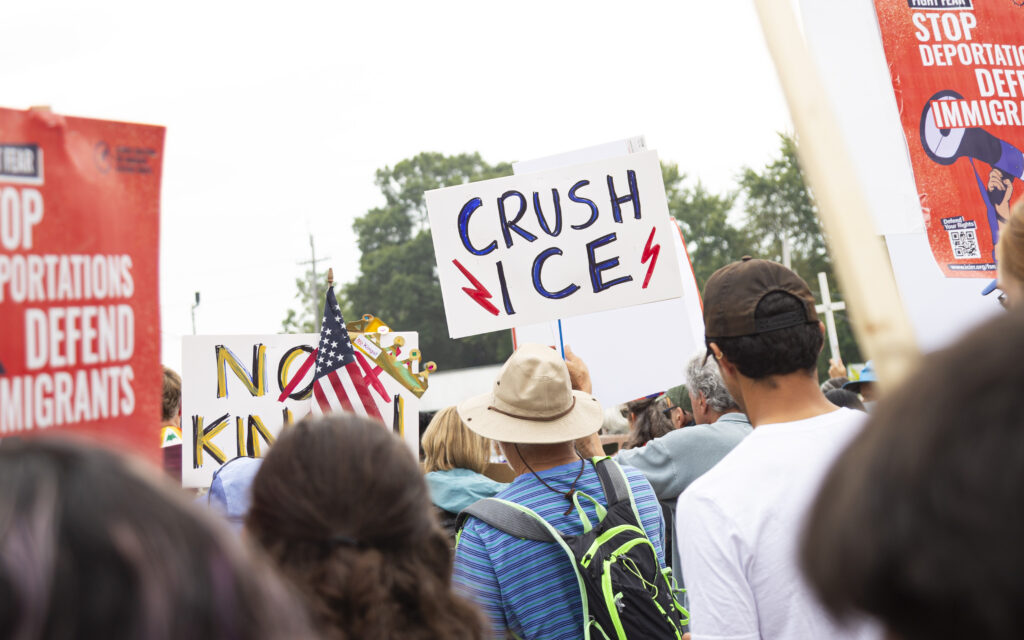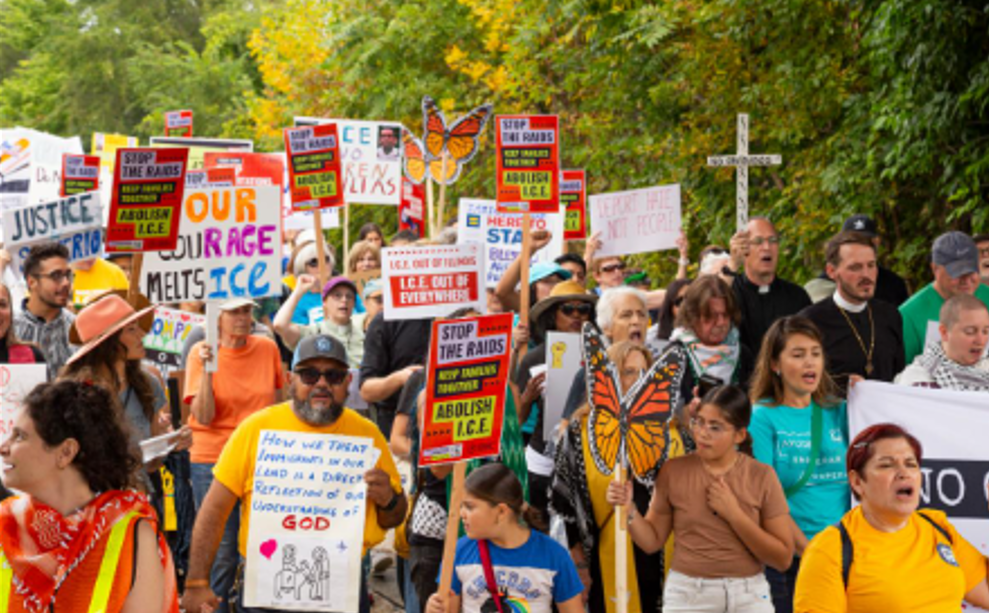A 15-year-old U.S. citizen was detained by Immigration and Customs Enforcement agents on the East Side of Chicago in October. He was never booked, read his rights or allowed to contact his mother for five hours. He was taken for allegedly throwing an egg at a Border Control agent as neighbors gathered to protest the military-style tactics being used outside their homes. He was eventually released without charges.
I was in a “Know Your Rights” training when I heard what happened. The irony wasn’t lost on me. I had logged on to learn what protections my own Moroccan-born sons who are naturalized U.S. citizens have if they are stopped by agents. I never imagined that understanding how to talk to immigration authorities would be something I’d have to teach my American children.
But this is Chicago in 2025. For two months, ICE and Border Patrol conducted sweeping operations that federal officials insist are targeting people with serious criminal records. Yet reporting by Reuters, The Washington Post, and the Associated Press tells a different, more troubling story of agents aggressively targeting communities and people based on how they look, of using chemical munitions and rubber bullets against anyone who disagrees or is watching.
Journalists have been indiscriminately targeted and tear-gassed while covering demonstrations at an ICE facility in suburban Broadview. A WGN employee was detained after reportedly asking agents if they had a warrant when she saw a man grabbed in her North Side neighborhood. As they did with the 15-year-old, the government accused the producer of throwing objects at them, which she disputes.
A group of media organizations filed suit in October accusing federal officers of targeting reporters and peaceful protesters, alleging “a pattern of extreme brutality” that violates the First Amendment. A federal judge agreed there was sufficient cause to intervene and issued a 14-day restraining order that barred federal agents from using riot-control weapons on journalists or protestors. An appellate court subsequently ruled in favor of the government, and in early December, the media groups dropped the lawsuit.The fact that courts are imposing restraining orders and injunctive relief indicates there is at least a plausible showing that constitutional rights may be at risk, which a Human Rights Watch report found. The group called on congressional Department of Homeland Security oversight committees to hold public hearings to examine agents’ excessive use of force and to consider legislative remedies to strengthen oversight and accountability of immigration enforcement operations.

The scale of the operation in Chicago and its effects on ordinary families is impossible to miss. The day after the 15-year-old was taken, I received an automated phone call saying my 11-year-old son hadn’t arrived at school. I ran there in a panic. I had watched my son leave that morning, walking out the door in his signature penguin hat. No one had answered the phone at the school when I called.
My son doesn’t carry identification in a city that is being terrorized by masked federal agents, My first thought was not that it was a mistake. Or that he had skipped school to hang out with his friends. My first thought was that ICE got him.
He was fine. A substitute teacher had marked him absent by mistake. But my fear was grounded in the scenes playing out across the city our family calls home. I’ve reported from half a dozen authoritarian regimes. I know what it looks like when masked agents act without accountability, and I know that Chicago is feeling that same weight of fear.
Although the Border Patrol has since moved on, ICE remains in Chicago, and people are still getting detained.
The Associated Press has documented federal agents in camouflage moving through neighborhoods, helicopters circling protests, people detained for questioning before being released without charges. Chicago Mayor Brandon Johnson has pledged that Chicago police will not aid federal agents or allow them to use city property as staging grounds. But for many of us, that promise is little comfort when federal agents in SUVs, some without plates, roar down our streets in pursuit of people who “look” like immigrants, when bystanders and journalists are targeted for trying to document what is happening.
Under Illinois law, it is legal to record law enforcement officers performing their duties in public as long as doing so does not interfere with their work, a recognition that such recordings serve a vital role in public accountability.
That right — to observe and to speak — is at the heart of what’s being tested here. The First Amendment guarantees freedom of speech, of the press and the right to assemble. The Fifth promises due process. In Chicago today, both feel under siege. When journalists are gassed, when protesters are silenced and when a 15-year-old U.S. citizen disappears into federal custody, those aren’t abstractions. They are warnings.
Jackie Spinner is the editor of GJR.
